-
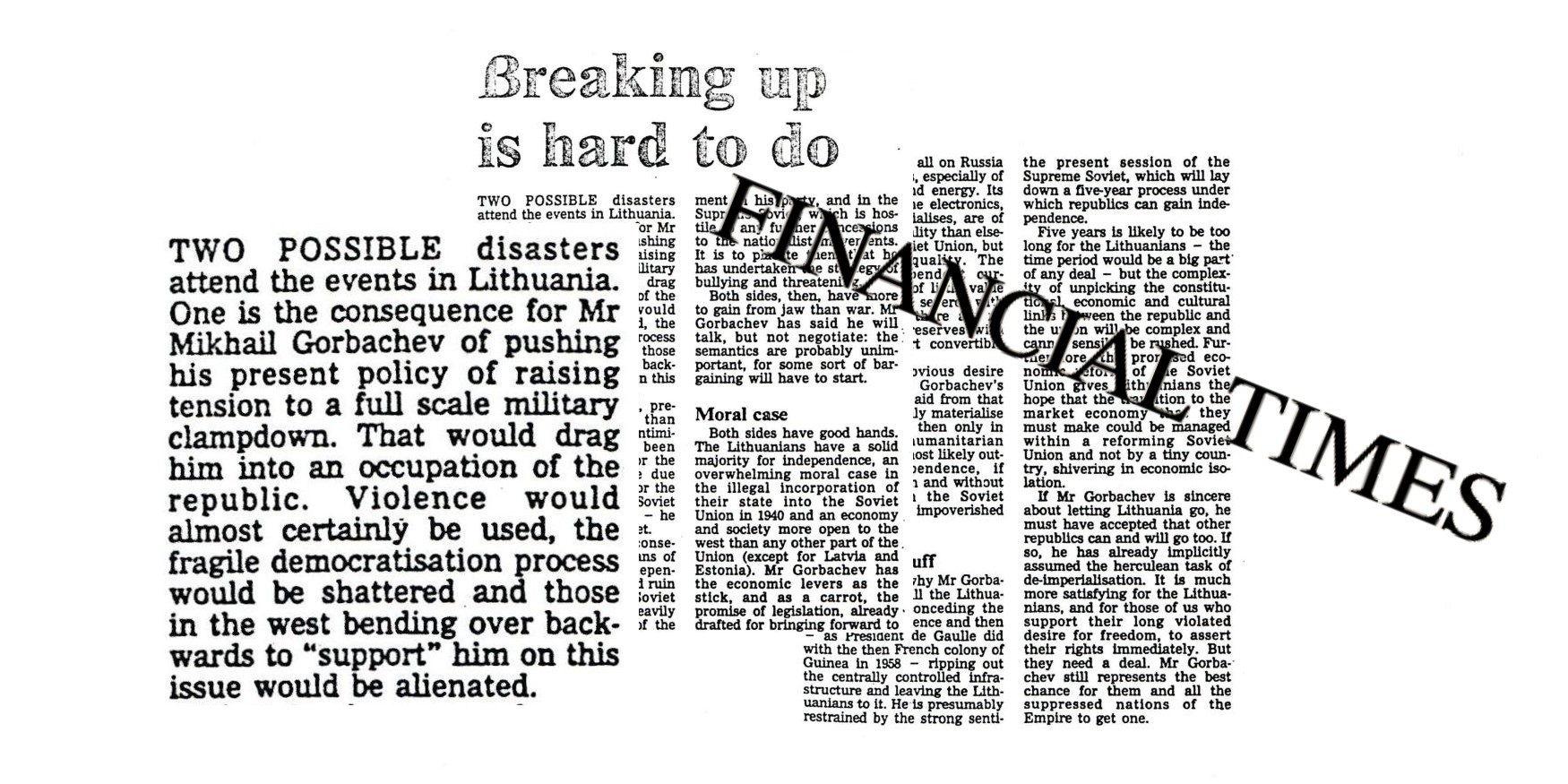
March 23, 1990
“Breaking up is hard to do”
Both sides have good hands. The Lithuanians have a solid majority for independence, an overwhelming moral case in the illegal incorporation of their state into the Soviet Union in 1940 and an economy and society more open to the West than any other part of the Union (except for Latvia and Estonia). Mr. Gorbachev has the economic levers as the stick, and as a carrot, the promise of legalization, already drafted for bringing forward to the present session of the Supreme Soviet, which will lay down a five-year process under which republics can gain independence.
-
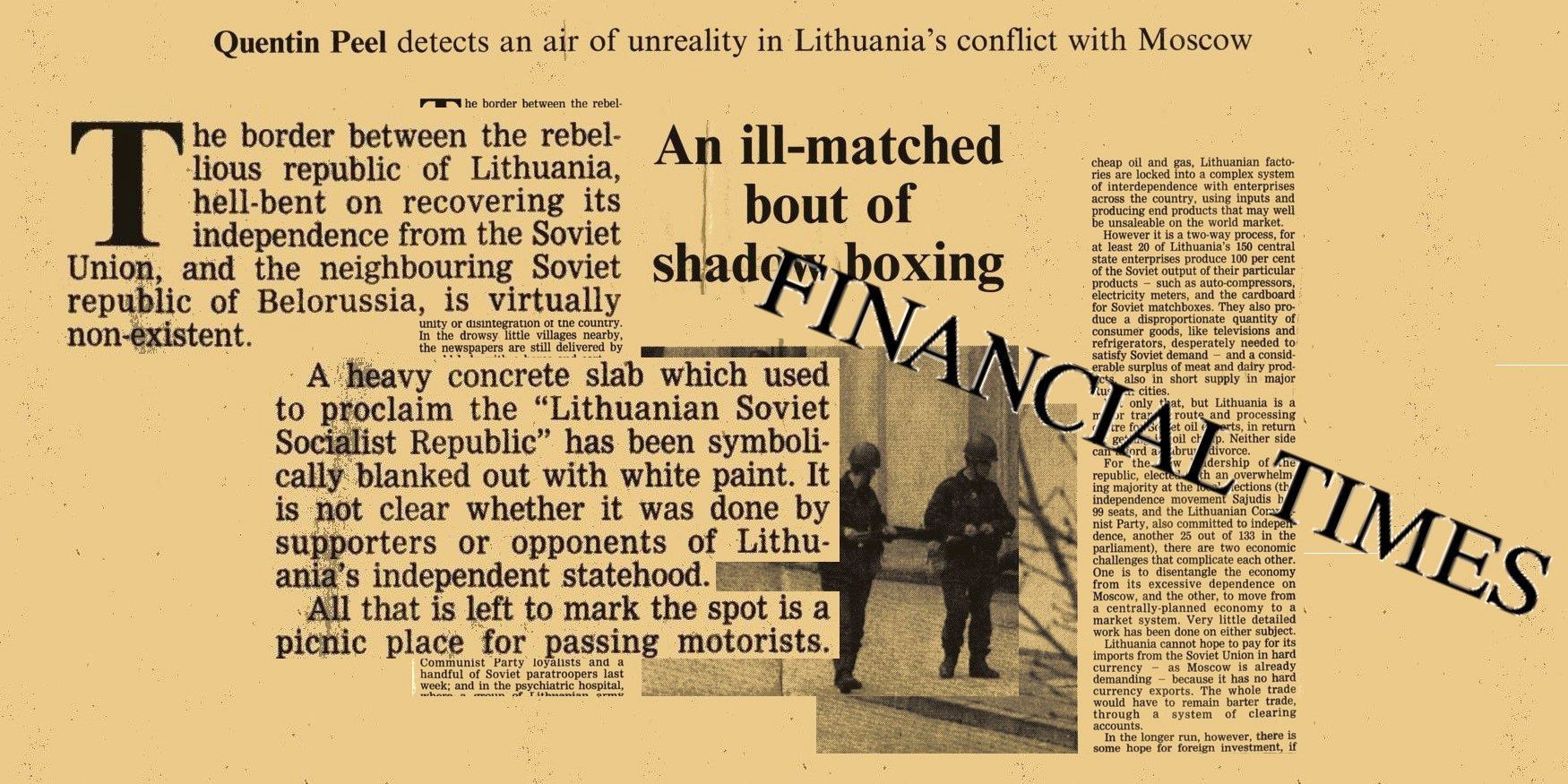
March 28, 1990
Quentin Peel. “An ill-matched bout of shadow boxing”
The border between the rebellious republic of Lithuania, hell-bent on recovering its independence from the Soviet Union, and the neighboring Soviet republic of Belorussia, is virtually non-existent.
A heavy concrete slab which used to proclaim the “Lithuanian Soviet socialist Republic” has been symbolically blanked out with white paint. It is not clear whether it was done by supporters or opponents of Lithuania’s independent statehood.
All that is left to mark the spot is a picnic place for passing motorists.
-
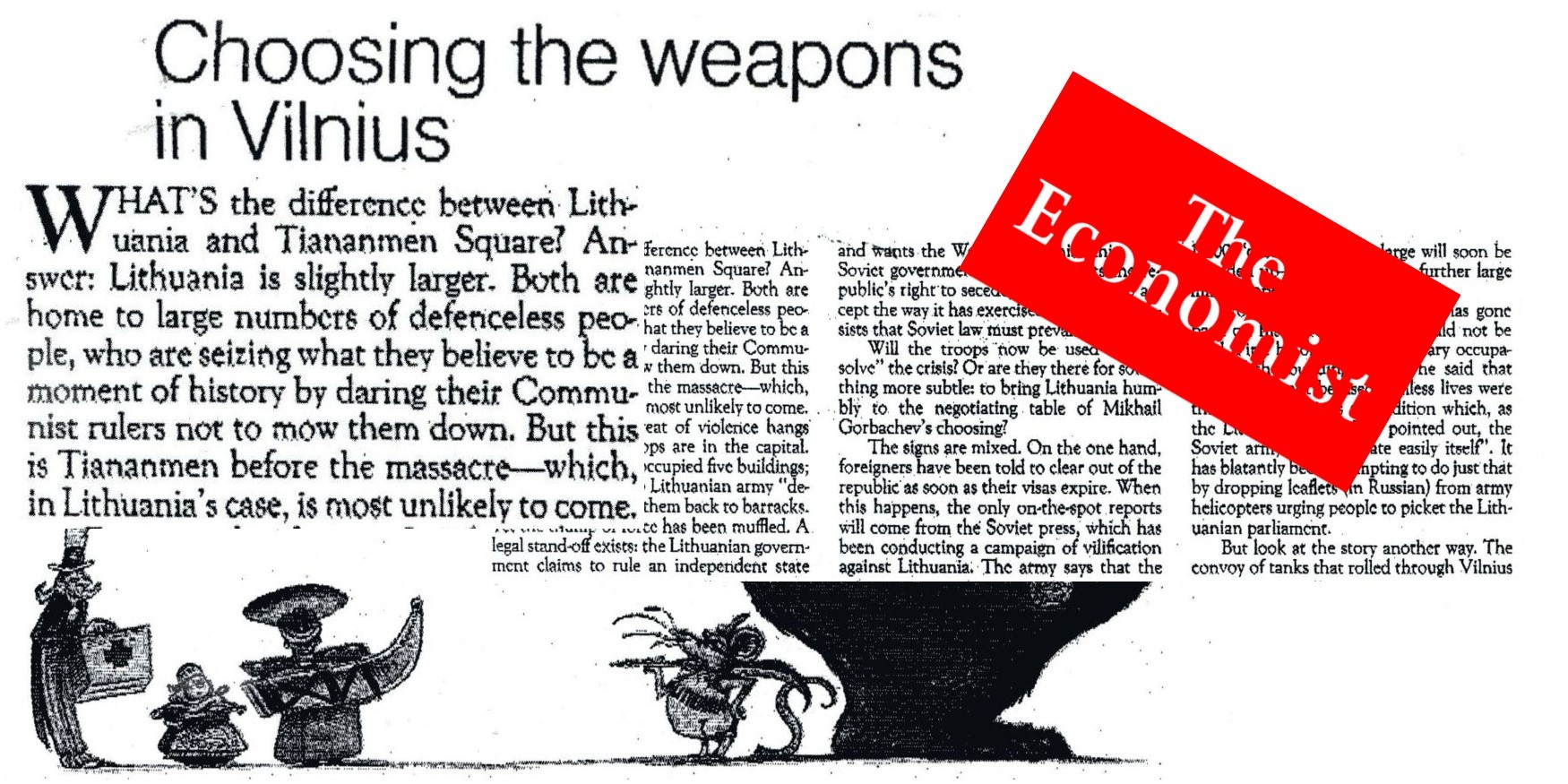
March 31, 1990
“Choosing the weapons in Vilnius”
What‘s the difference between Lithuania and Tiananmen Square? Answer: Lithuania is slightly larger. Both are home to large numbers of defenseless people, who are seizing what they believe to be a moment of history by daring their Communist rulers not to mow them down. But this is Tiananmen before the massacre – which, in Lithuania’s case, is most unlikely to come.
-
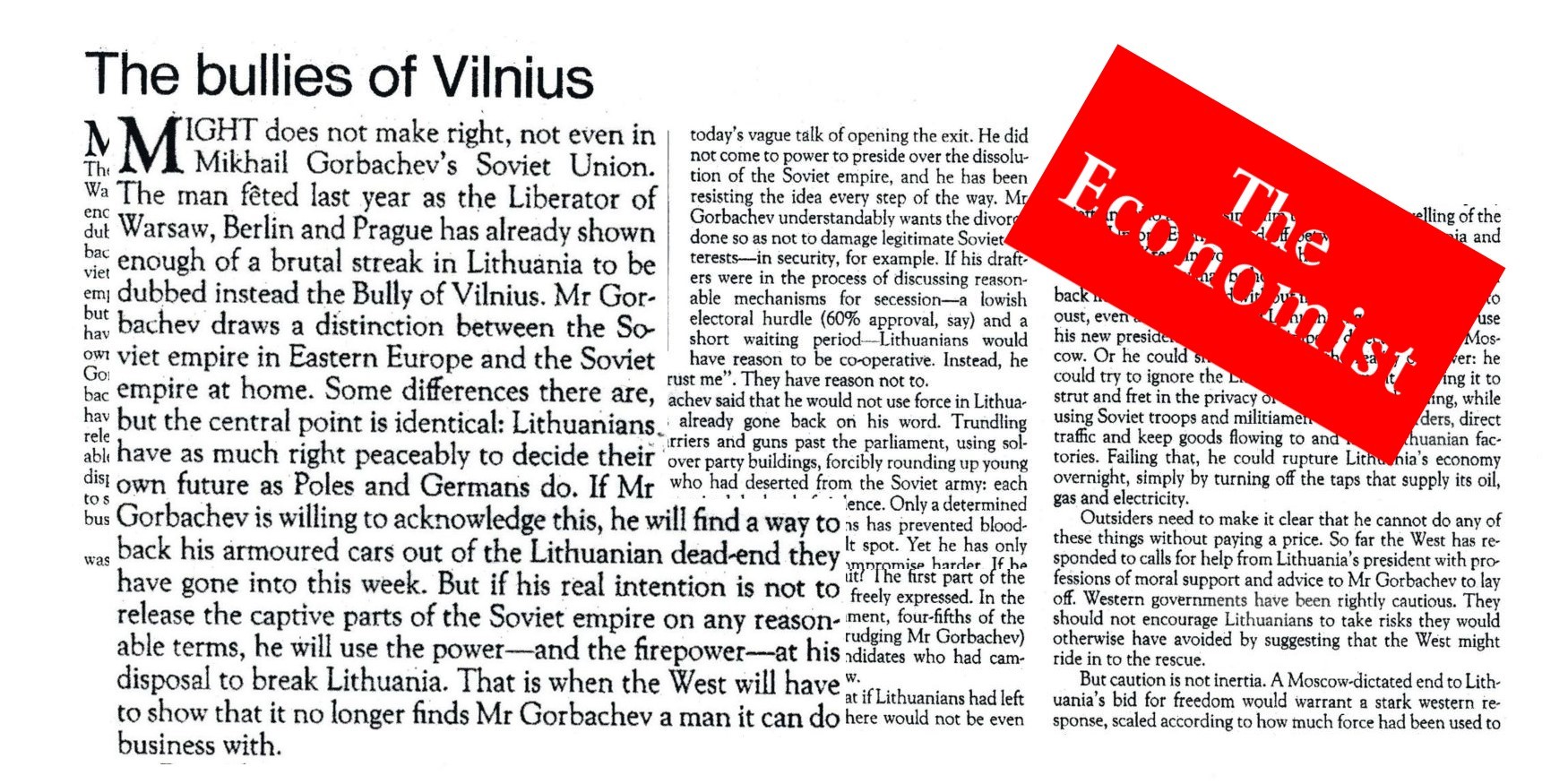
March 31, 1990
“The bullies of Vilnius”
Might does not make right, not even in Mikhail Gorbachev's Soviet Union. The man fêted last year as the Liberator of Warsaw, Berlin and Prague has already shown enough of a brutal streak in Lithuania to be dubbed instead the Bully of Vilnius. Mr Gorbachev draws a distinction between the Soviet empire in Eastern Europe and the Soviet empire at home. Some differences there are, but the central point is identical: Lithuanians have as much right peaceably to decide their own future as Poles and Germans do. If Mr Gorbachev is willing to acknowledge this, he will find a way to back his armoured cars out of the Lithuanian dead-end they have gone into this week. But if his real intention is not to release the captive parts of the Soviet empire on any reasonable terms, he will use the power – and the firepower – at his disposal to break Lithuania. That is when the West will have to show that it no longer finds Mr Gorbachev a man it can do business with.
-
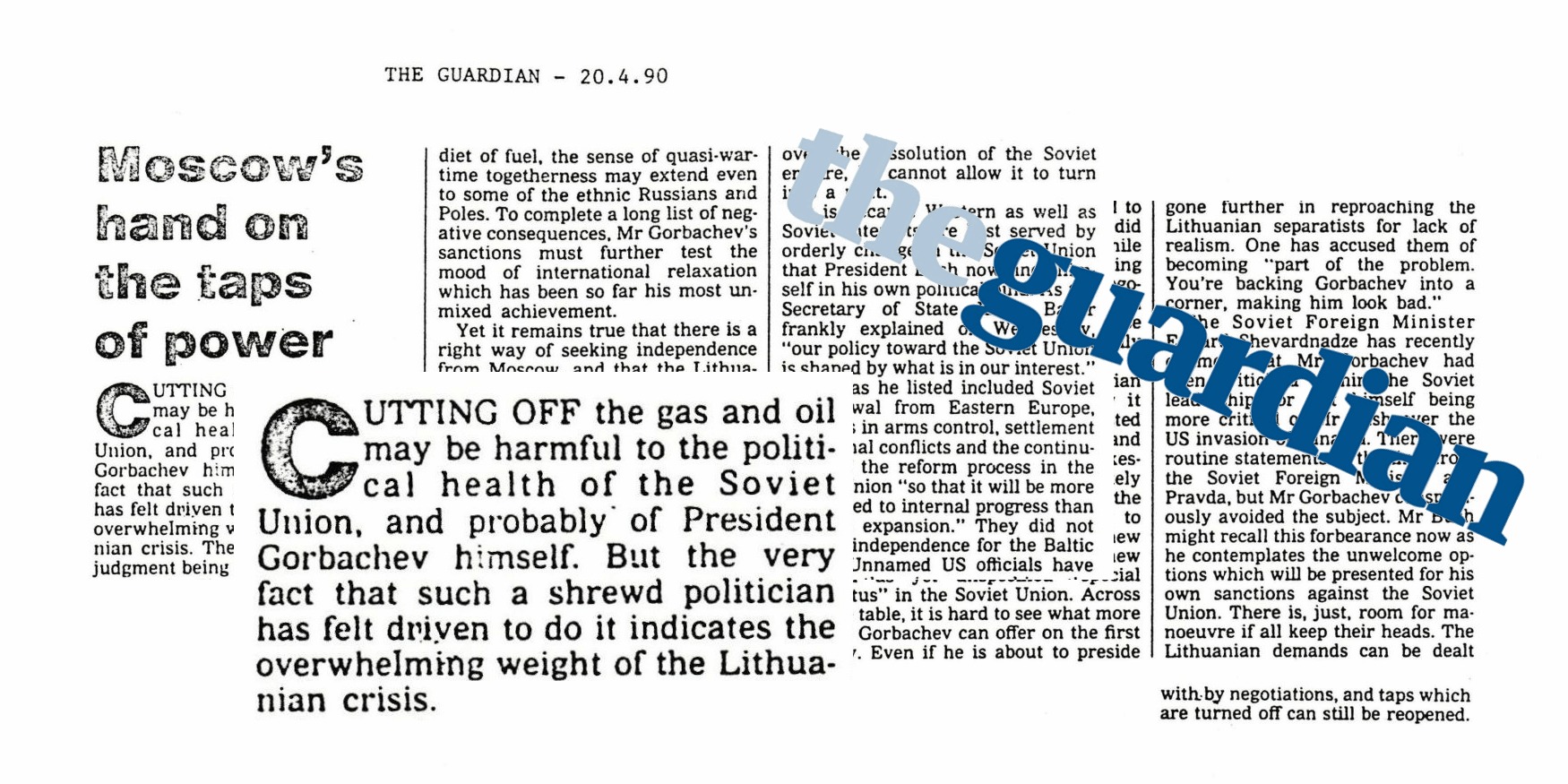
April 20, 1990
“Moscow‘s hands on the taps of power”
Cutting off the gas and oil may be harmful to the political health of the Soviet Union, and probably of President Gorbachev himself. But the very fact that such a shrewd politician has felt driven to do it indicates the overwhelming weight of the Lithuanian crisis.
-
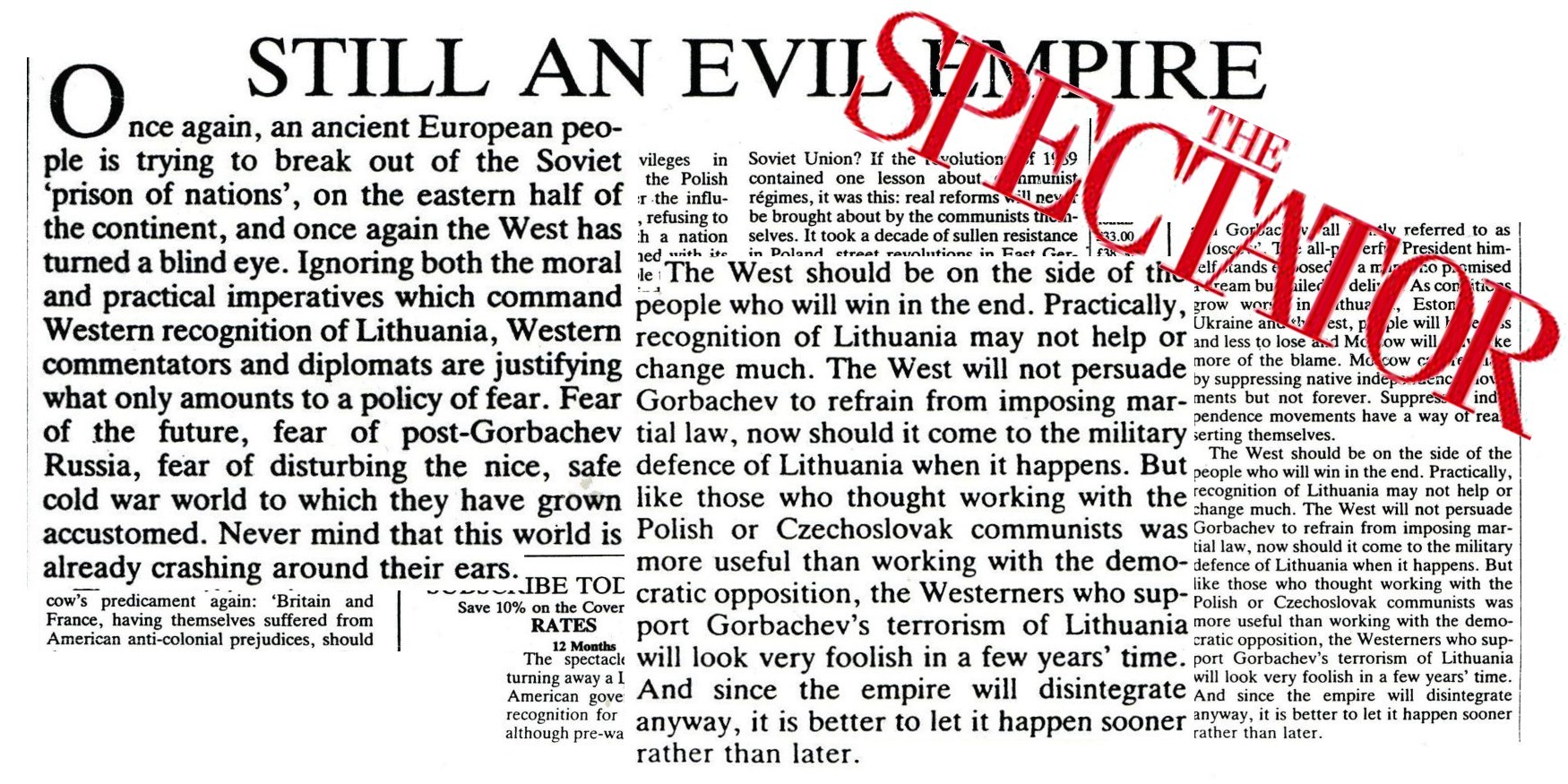
April 14, 1990
“Still An Evil Empire”
Once again, an ancient European people is trying to break out of the Soviet `prison of nations', on the eastern half of the continent, and once again the West has turned a blind eye. Ignoring both the moral and practical imperatives which command Western recognition of Lithuania, Western commentators and diplomats are justifying what only amounts to a policy of fear. Fear of the future, fear of post-Gorbachev Russia, fear of disturbing the nice, safe cold war world to which they have grown accustomed. Never mind that this world is already crashing around their ears.
The West should be on the side of the people who will win in the end. Practically, recognition of Lithuania may not help or change much. The West will not persuade Gorbachev to refrain from imposing martial law, now should it come to the military defense of Lithuania when it happens. But like those who thought working with the Polish or Czechoslovak communists was more useful than working with the democratic opposition, the Westerners who support Gorbachev's terrorism of Lithuania will look very foolish in a few years' time. And since the empire will disintegrate anyway, it is better to let it happen sooner rather than later.
